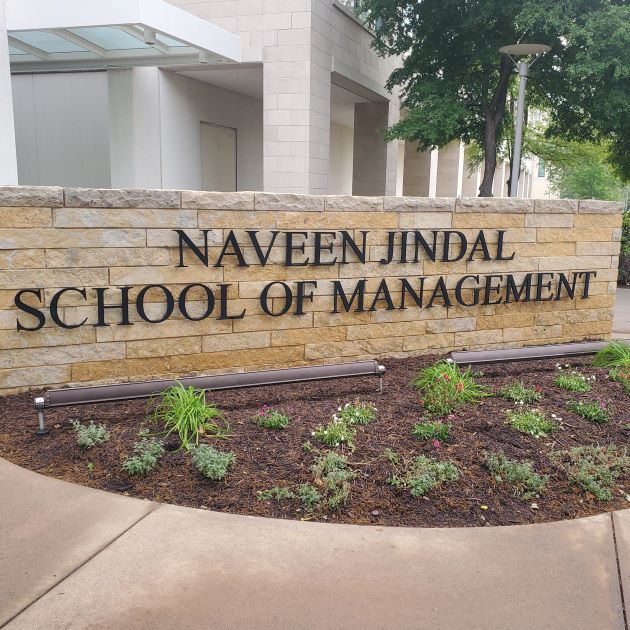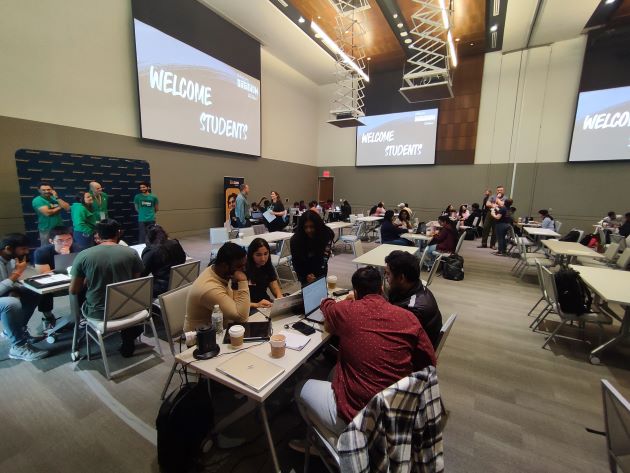
“Low on code, high on value” was the core message of the inaugural Low Code Weekend hosted by the Naveen Jindal School of Management at The University of Texas at Dallas April 5-6. The event brought together industry leaders and educators to explore the future of low-code development platforms and their impact on the workforce, along with training educators from more than 20 institutions on these tools. The event also saw more than 100 students participate in the Datathon organized by Alteryx SparkEd program.
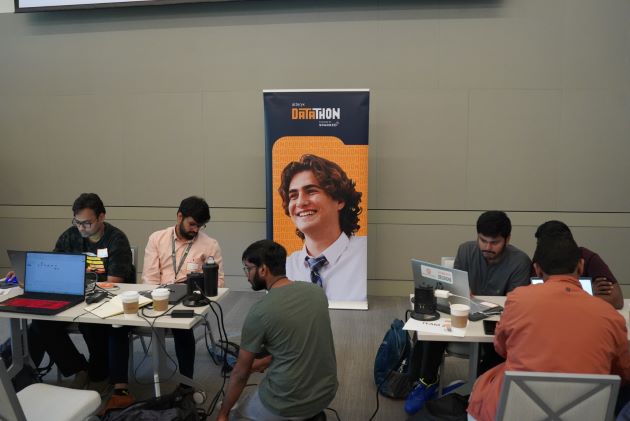
“Low-code platforms are designed to empower users with little to no coding experience to build applications,” said Gaurav Shekhar, senior assistant dean of graduate programs at the Jindal School and an assistant professor of instruction in the Information Systems Area. “These platforms offer a visual interface and pre-built components that can be dragged and dropped to create workflows and applications.”
The Low Code Weekend featured a panel on the future of workforce that included Dr. Hasan Pirkul, Caruth Chair and dean of the Jindal School; Olivia Duane Adams, the chief advocacy officer and co-founder of Alteryx; and Dr. Brita Andercheck, chief data officer for the City of Dallas. The panel was moderated by Shekhar, the conference chair.
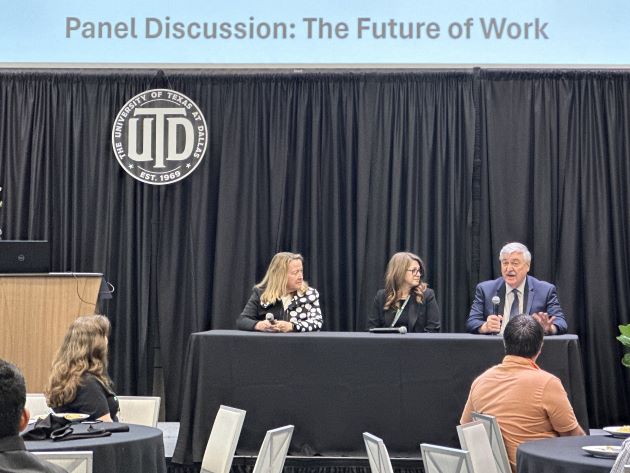
Pirkul highlighted the fact that AI is going to play a major role in the way our workforce and businesses shape up in the future. Adams cited the growing demand for low-code skills and the need for educational institutions to equip students with these capabilities.
“Low-code platforms are democratizing application development,” Adams said. “They are making it possible for people from all backgrounds to create solutions that can address real-world problems.”
Andercheck attributed the importance of data and related skills that are necessary to make the right policy decisions. She called the new age CIOs the “new cool kids” for their ability to wrangle data in ways that were not previously possible.
The panelists agreed that low-code platforms will create new opportunities for workers with a variety of skillsets; however, they also cautioned that there will still be a need for traditional programming skills for more complex tasks.
UiPath, a leading provider of Robotic Process Automation (RPA) solutions, was an event sponsor. The company offers a low-code platform that allows users to automate repetitive tasks, such as data entry and form filling. During the event, UiPath representative Amit Yadav, vice president of Global Business Services at RS Group, explained how the platform is being used by companies like Toyota and Pepsi to improve efficiency and productivity. He also discussed the company’s educational initiatives, which aim to train 1,000 educators and 300,000 students on RPA by 2025.
Tableau, another major sponsor of the Low Code Weekend, showcased its data visualization platform. Tableau allows users to create interactive dashboards and reports without needing to write code. A presentation by Amar Alembath, manager, Data Engineering & Analytics at American Airlines and a Tableau representative, highlighted a use case with the U.S. Army. Tableau helped the Army to interpret data and make better decisions about logistics and resource allocation. The representative also discussed how businesses like the Texas Rangers are using Tableau to gain insights from their data and improve fan engagement.
Alteryx, a data science and analytics platform provider, was a key participant in the Low Code Weekend. Alteryx offers a low-code platform that allows users to prepare, analyze and blend data. A presentation by company representative Eric Soden, also managing partner at Capitalize Analytic, focused on Alteryx SparkED, a program that provides educators with free access to Alteryx software and resources. Alteryx SparkED has trained more than 1,200 educators and reached more than 170,000 learners.
The Ateryx Datathon student competition had scores of students participating for the second year in a row. The event was preceded with regular training sessions and checkpoints to ensure that the students were proficient with the tool. The problem statement that the students tackled was “Why Texas is the best place to be?”
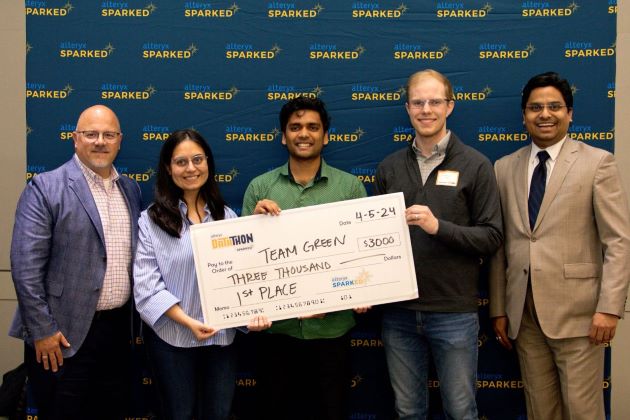
The first-place team, consisted of Nikar Khillar, Simran Sharma, Praveen Satya Rajamanickam Vijayaraghavan, all graduate business analytics students at the Jindal School, and Patrick Dodd, from the University of Dallas. They took home $3,000.
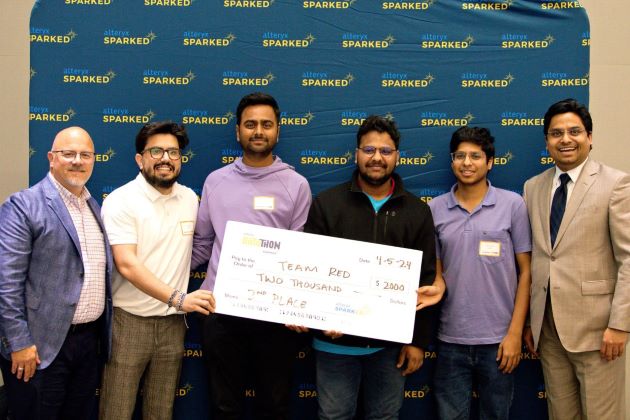
The members of the second-place team were Keshav Sarraf, Schin Sripathi, Sai Sampath Patro Yellumahanti, and Praveen Satya Rajamanickam Vijayaraghavan, all graduate business analytics students at the Jindal School, and Junaid Ahsan, from the University of Dallas. They won $2,000.
Day 2 of the event saw educators from more than 20 institutions get trained on Alteryx, UiPath and Tableau. The instructors were provided with teaching materials and lesson plans that can help them take these skills into their classrooms.
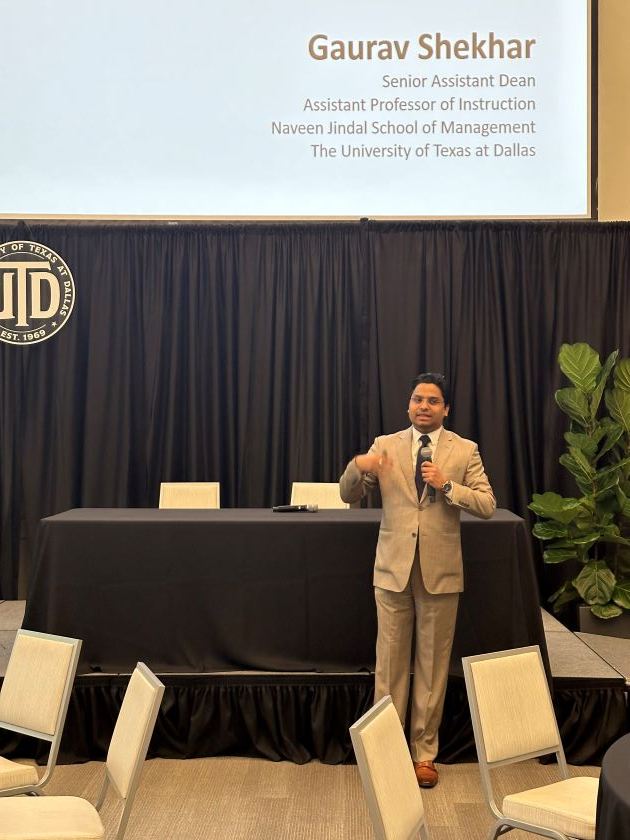
“It is our responsibility at the Jindal School to not only ensure that our students are taught the latest software or concepts, but we extend the same to our colleagues from other institutions,” said Shekhar, the director of the Jindal School’s MS Business Analytics Flex and Online programs. “We have to understand that the only way to grow, is to grow together.”



